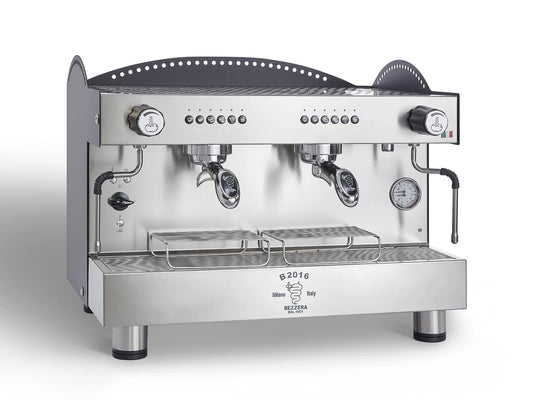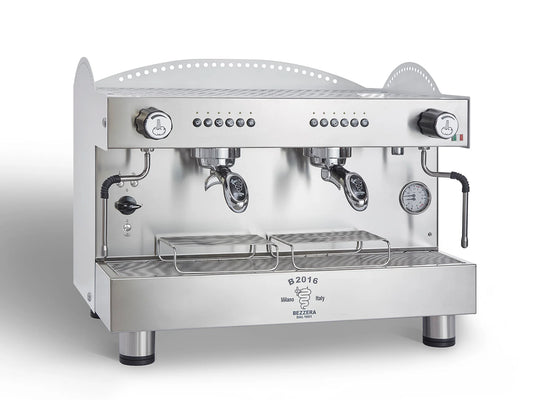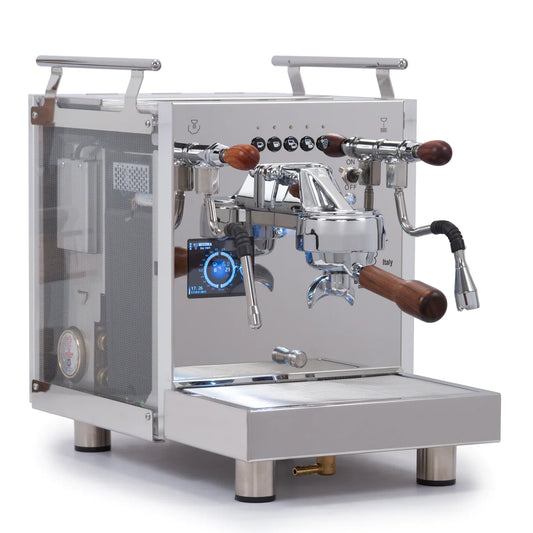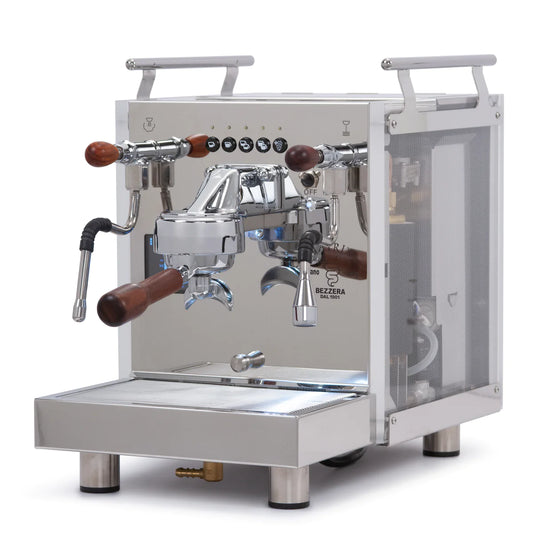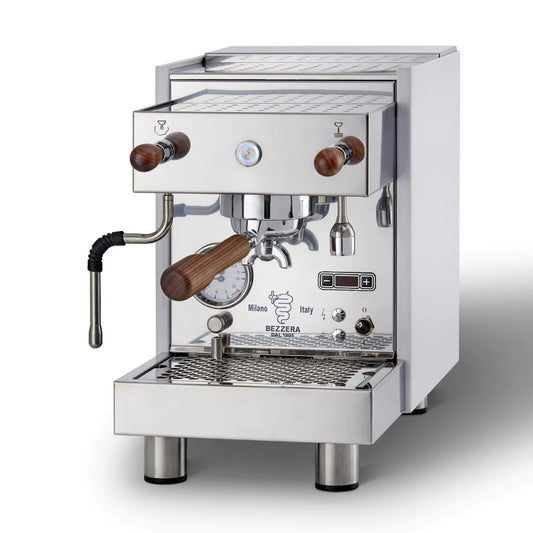Celebrating 25 Years of Casa Coffee Roasters: A Journey from Espresso to Ethical Beans
Table of Contents
- Key Highlights:
- Introduction
- The Di Rienzo Legacy: A Family Tradition
- Evolution to Casa Coffee Roasters
- The Art and Science of Coffee Roasting
- Commitment to Ethical Sourcing
- Navigating Coffee Trends and Consumer Preferences
- The Craft of Coffee Tasting
- Community Engagement and Future Directions
Key Highlights:
- Casa Coffee Roasters, originally Casa Espresso, has evolved over 25 years from importing Italian espresso machines to becoming a leading specialty coffee roaster in Yorkshire.
- Under the leadership of Nino Di Rienzo, the company emphasizes ethically sourced coffee, supporting global farming communities and highlighting the unique stories behind each blend.
- The roasting process, including careful monitoring of temperature and time, ensures high-quality coffee that caters to a growing market increasingly focused on flavor and sustainability.
Introduction
In the heart of Shipley, Yorkshire, Casa Coffee Roasters stands as a testament to the enduring legacy of the Di Rienzo family within the United Kingdom's coffee landscape. What began as a small business in a spare room in Keighley has transformed significantly over 25 years, evolving from an importer of Italian espresso machines to one of Yorkshire's premier independent coffee roasters. This trajectory is not just a story of business growth; it's a narrative woven with passion, heritage, and a commitment to ethical sourcing in the coffee industry. As the company celebrates its quarter-century milestone, it reflects on its rich history while forging ahead with a renewed brand and mission.
The Di Rienzo Legacy: A Family Tradition
Tony Di Rienzo, the founder of what would eventually become Casa Coffee Roasters, was not merely a businessman but a pioneer in Bradford's culinary scene. Arriving in the UK in the 1960s, Tony began his journey in the food industry as a waiter, progressing through various roles before opening The Pizza House in 1974, which was Bradford’s first pizzeria. His love for Italian cuisine laid the groundwork for his later ventures.
Tony's culinary contributions extended beyond pizza, as he built a reputation with renowned restaurants, notably Da Tonino, which showcased authentic Italian flavors to the local community. Nino Di Rienzo reminisces about his father's early skepticism regarding pizza's longevity in the British culinary landscape. Yet, the flavor and creativity in Tony's offerings proved otherwise. After selling his pizzeria in the late 70s and spending a decade back in Italy, the family returned to the UK in 1992, setting the stage for Tony's next venture.
In 2000, he founded Casa Espresso, a venture that paralleled the burgeoning coffee culture in the UK. The company began by importing high-quality espresso machines, with Tony becoming the first UK importer of Sanremo machines. His aptitude for fixing and maintaining these machines bolstered a growing demand within the local café scene.
Evolution to Casa Coffee Roasters
As the demand for coffee soared, Nino, who took over the reins after Tony's passing in 2007, recognized a gap in the market for locally roasted beans. In 2014, he diversified the business by initiating coffee roasting operations, establishing Casa Espresso Coffee Roasters as the first company in Bradford to roast its own coffee beans. This transition not only expanded Casa's product offerings but also marked the beginning of a commitment to ethical sourcing and community support.
Nino's vision was clear: to create small batches of coffee that were both ethically sourced and bursting with flavor. "I saw a gap in Bradford for locally roasted, high-quality coffee," he explains. The community's response was overwhelmingly positive, leading to a growth trajectory that culminated in the rebranding to Casa Coffee Roasters—a name better aligned with its specialty roaster identity.
The Art and Science of Coffee Roasting
At the core of Casa Coffee Roasters' success lies the meticulous roasting process, characterized by attention to detail and a deep understanding of coffee cultivation. The raw coffee beans, initially unroasted and green, undergo a transformation that requires keen monitoring of temperature and time. Each batch is handled with care, ensuring that the natural sweetness of the beans is brought out during roasting.
The team employs a gas-heated drum for roasting, where Nino explains the importance of processing methods—either washed or natural—that dramatically influence flavor profiles. For instance, beans processed with water typically yield distinct floral notes, while naturally processed beans exhibit a more vibrant, fruity essence.
Jonnie Drake, the head roaster at Casa Coffee Roasters, describes how environmental factors such as weather can alter roasting times, indicating the fine balance between science and nature in achieving the ideal roast. "The weather has an impact on roasting times - if it’s very hot or cold it affects the beans," he notes, showcasing the complexity involved in perfecting coffee roasting.
After roasting, beans are cooled quickly to lock in the flavors developed during the roasting process. The flavors are cultivated not just through the roasting method, but through the beans' origin. Casa Coffee Roasters sources beans from various countries, including Colombia, Nicaragua, and Rwanda, ensuring each coffee's traceability back to the farms.
Commitment to Ethical Sourcing
Casa Coffee Roasters has woven an ethical approach into its operational model, aiming to create social change through coffee. The company collaborates with farmers and independent importers dedicated to improving the supply chain and investing in local communities. Nino emphasizes the importance of cooperation in empowering farmers through initiatives that fund local schooling and agricultural training.
Highlighting specific coffee varieties, Nino speaks about the Madremonte blend sourced from a women-only cooperative in Colombia. Each coffee carries a narrative—regions, altitude, and preparation methods—providing context and connectivity for customers. For instance, the Gotiti coffee features tasting notes of blueberry, lime, and lavender and supports farmers focusing on sustainability and modern agricultural practices.
Navigating Coffee Trends and Consumer Preferences
The coffee industry has seen numerous waves of changes in consumer preferences over the years. From traditional European-style cafés to the third wave of coffee culture characterized by a focus on quality and artisanal brewing methods, consumers have become increasingly discerning about their coffee choices. Nino notes how the pandemic escalated this trend, as consumers sought espresso machines for home brewing and turned to direct purchasing from roasters, leading to an increase in online sales for Casa Coffee Roasters.
As Casa Coffee Roasters adapts to these shifts, the company continues to prioritize quality and sustainability. The introduction of specialty blends and single-origin coffees reflects changing consumer interests towards more unique and flavorful experiences. Nino is keenly aware of the fluctuating demands and tastes among coffee drinkers, stating that enhancing flavors and offering each coffee's story has become a central part of the brand’s identity.
The Craft of Coffee Tasting
An often-overlooked aspect of the coffee business is the practice of tasting or cupping. This process is considered the universal standard for evaluating coffee quality and flavor profiles. Casa Coffee Roasters incorporates cupping sessions into its routine, where the entire team participates in tasting different coffee varieties to assess their quality. Barista trainer Aidan Varney describes the meticulous procedure, which involves brewing coffee, waiting for it to steep, and then disturbing the crust that forms on the surface to release the aroma.
The cupping process is essential for determining which coffee grades meet Casa Coffee Roasters' standards and contribute to its reputation for quality. This collective effort ensures that all members involved have a say in what coffee gets featured and nurtures a culture of expertise and enjoyment within the company.
Community Engagement and Future Directions
To commemorate its 25th anniversary, Casa Coffee Roasters is not only reflecting on past achievements but also planning future initiatives that celebrate the craft of coffee and its place in community life. Barista training courses, tasting sessions, and open days are on the docket—approaches aimed at demystifying coffee roasting and brewing for enthusiasts and novices alike.
With a renewed focus on community and sustainability, Casa Coffee Roasters is poised to continue its legacy while adapting to the ever-evolving coffee landscape. Customers can expect seasonal variations in coffee offerings, each accompanied by an engaging narrative that connects them to the broader story of coffee culture.
FAQ
How did Casa Coffee Roasters get started?
Casa Coffee Roasters originated as Casa Espresso, founded by Tony Di Rienzo in 2000 to import Italian espresso machines. It later expanded into coffee roasting, becoming Bradford's first company to do so in 2014.
What makes Casa Coffee Roasters unique?
The company emphasizes ethically sourced coffee and unique stories behind each blend. Its commitment to quality and community support distinguishes it in a competitive market.
Where does Casa Coffee Roasters source its coffee?
Casa Coffee Roasters sources beans from various regions, including Ethiopia, Colombia, Nicaragua, and Rwanda, ensuring full traceability back to the growers.
How is the roasting process conducted?
The roasting process is carefully controlled by monitoring temperature and time, with each batch being roasted separately to bring out distinctive flavors. Environmental factors also impact roasting outcomes.
What initiatives does Casa Coffee Roasters support within farming communities?
The company collaborates with co-operatives that invest in local schools and provide training to farmers, particularly focusing on empowering women in coffee cultivation.
As Casa Coffee Roasters embarks on another chapter in its journey, it stands as a symbol of innovation, quality, and community focus in the coffee industry—a beacon for other businesses aiming to blend heritage with modern consumer expectations.

